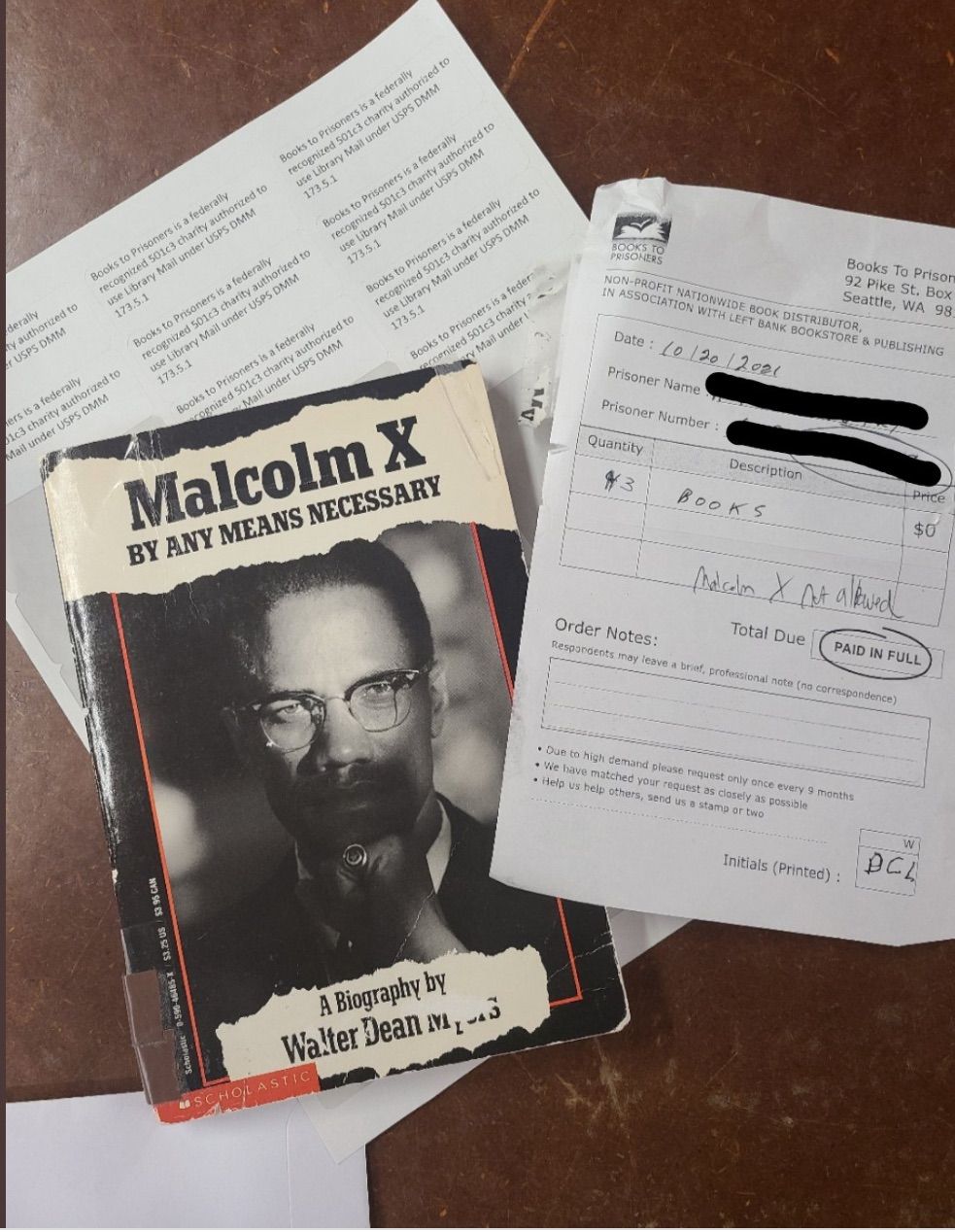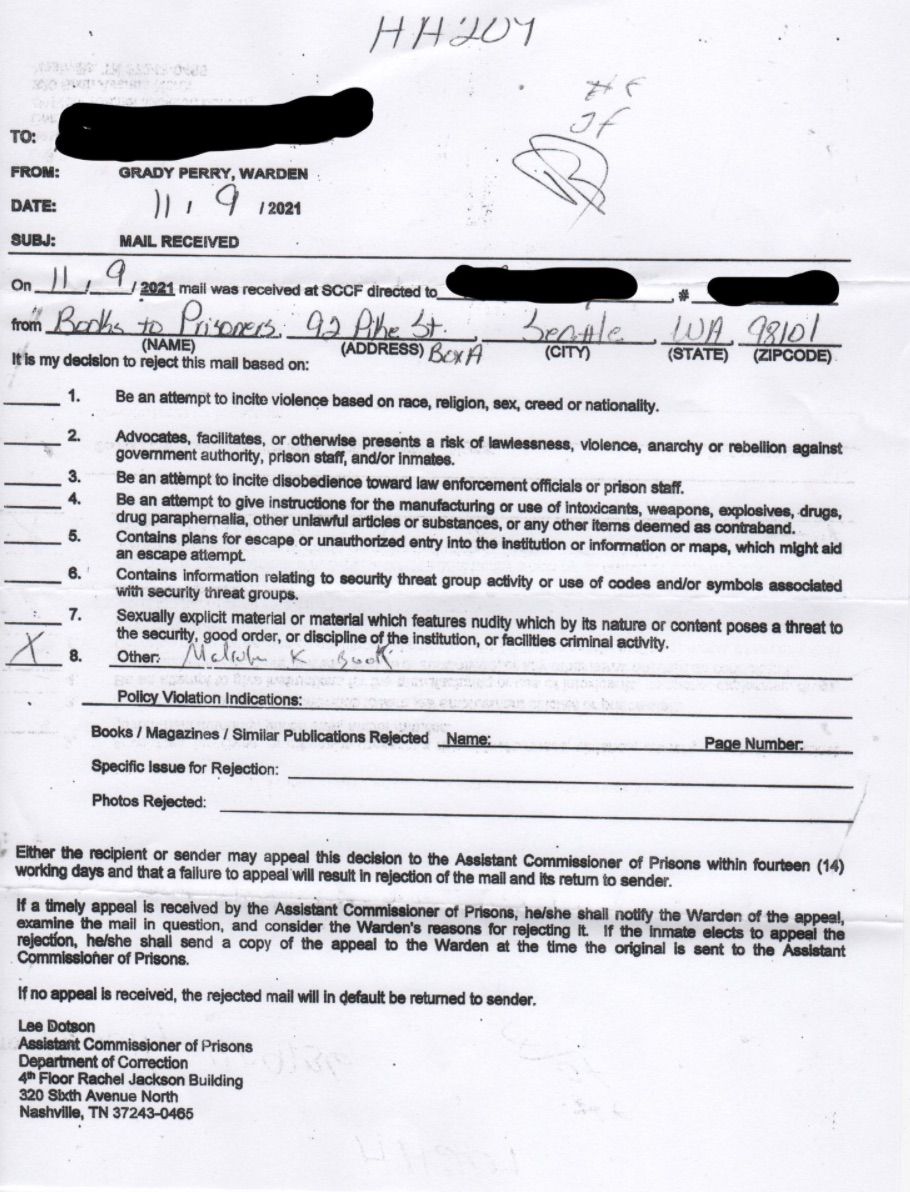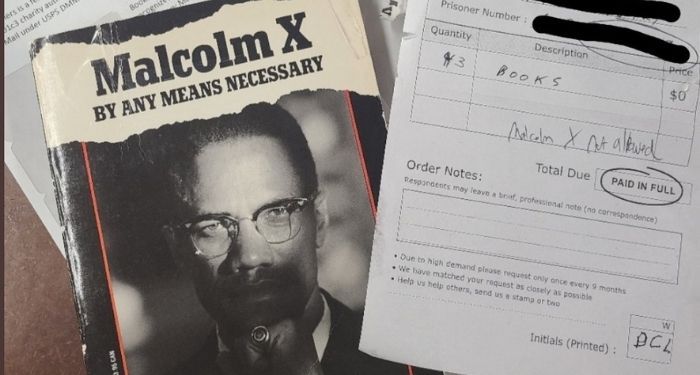Prison censorship is nothing new, and with ever-shifting regulations about what books can and cannot be donated to libraries and individuals who are incarcerated, even organizations with the mission of getting books into those places are finding themselves surprised.
South Central Correctional Facility (SCCF), a private prison managed by the Tennessee-based CoreCivic, rejected a donation from Books to Prisoners. Three books were sent back to the organization by SCFF, including a children’s biography of Malcolm X titled Malcolm X: By Any Means Necessary, written by Walter Dean Myers. The book had been requested by an individual inside the facility and was denied by someone in the mail room of SCCF.
This follows in a larger and insidious legacy of prisons censoring work by and about Black people.

SCCF returned the books to Books to Prisoner, though as of writing, only the Malcolm X book has been identified among the rejected titles. The invoice, pictured above and sent from Books to Prisoners along with the donation, says Malcolm X books are not allowed.
Prior to the book’s return, a letter from the facility indicated that the reason the book was being rejected was simply “Malcolm X.”

Tennessee policy on sending materials to individuals experiencing incarceration allows 14 days to appeal rejections, but Books to Prisoners was given no instructions for how to place a formal appeal. Further complicating matters are the fact SCCF is a private facility and not necessarily under the state mandated guidelines, as well as the fact the books arrived separate from the official rejection letter, both outside the 15 working day appeal period.
Given the blanket reason for rejecting three books, this is a targeted ban with no true justification. It comes on the heels of news that Malcolm X’s own prison cell being transformed into a freedom library.
Censorship is never a new story, but the past year as showcased how wide-spread and coordinated the work of censors is across the US, particularly in public schools and libraries. But censorship is even more insidious inside prison facilities, and it continues to actively work against efforts to ensure individuals inside aren’t given the opportunity to learn, to grow, and to lower recidivism rates. The prison industrial complex can’t profit if it encourages rehabilitation.
Disallowing books by and about Black people into the hands of those experiencing incarceration is yet another cruel tactic.
